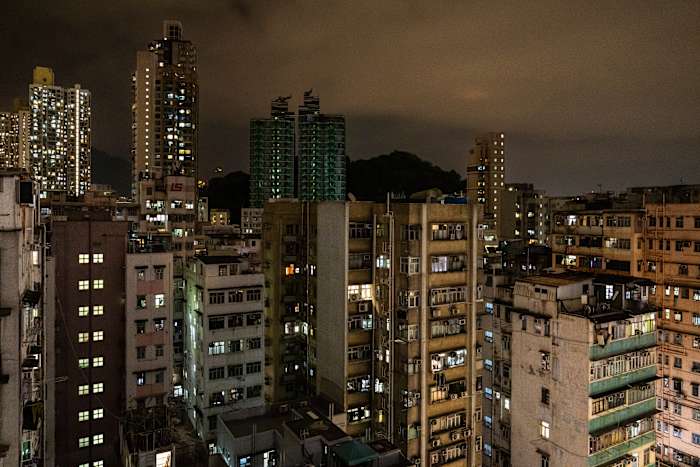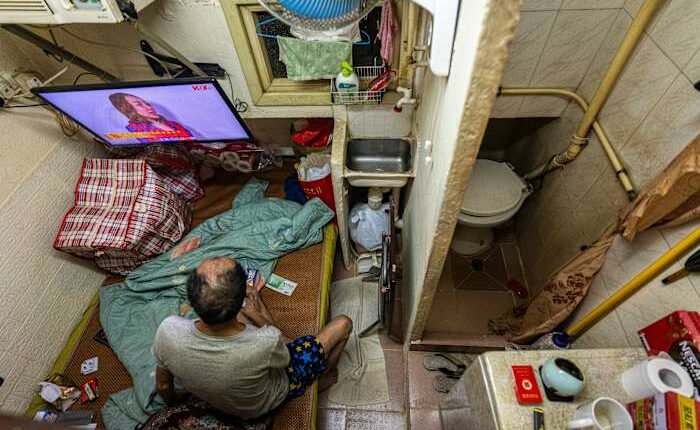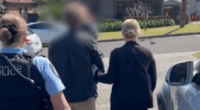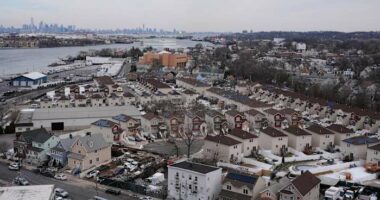Share this @internewscast.com

HONG KONG – Hong Kong legislators approved a bill on Friday that sets minimum size requirements, a private bathroom, and other criteria for subdivided flats— a typical housing solution in one of the planet’s priciest cities.
Approximately 220,000 residents occupy spaces formed by dividing standard apartments. These include migrants, workers, students, and budding professionals. Some units feature a toilet next to the kitchen area, lack a bathroom sink, or share bathroom facilities with neighbors.
Beijing considers the city’s housing challenges a factor in the 2019 anti-government protests and aims to eliminate subdivided flats by 2049.
Housing Secretary Winnie Ho said it was painful to see people living in substandard conditions and these sufferings should not occur in Hong Kong.
Legislators passed the bill by a show of hands after hours of debate.
Currently, about a quarter of Hong Kong’s 110,000 subdivided units fall under the new minimum size requirement of 8 square meters (86 square feet). In contrast, a typical parking space in the city measures 10 square meters (110 square feet). The median rent is 5,000 Hong Kong dollars ($640) per month.
Roughly 33,000 units, equating to 30% of these apartments, will require substantial renovations to comply with the updated standards, while the others will need minor adjustments.
Each unit must also feature at least one operable window, exclusive fire detectors, and a closed toilet area separated by a door from the rest of the flat, among other specifications.
Landlords will have a grace period to renovate substandard homes and eventually can only rent out those that are recognized as meeting the standards. Violations could lead to up to a fine of 300,000 Hong Kong dollars (about $38,500) and three years of imprisonment, along with a daily fine for ongoing offenses.
The authorities planned to roll out a registration scheme next March.
Low-income residents have expressed concerns about their future under the new rules, worrying about a surge in rent and the challenges of finding a new home if their apartments fail to meet the bar.
Ho said she expected the rent would not significantly jump. Some transitional apartments are planned for residents who become uprooted and met eligibility requirements.
About 189,000 public housing units are planned to be built over the next five years.
The policy will not cover smaller dormitory-like “bed spaces.” Bed spaces are widely considered to be Hong Kong’s worst form of housing — partitioned areas in which residents get barely enough space to fit a single bed and some belongings. The government says those are regulated under another law.
Copyright 2025 The Associated Press. All rights reserved. This material may not be published, broadcast, rewritten or redistributed without permission.













